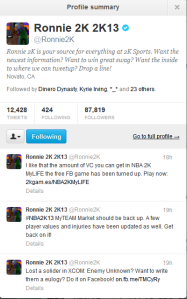 Toyota’s “We Are Many” social media campaign is interesting for many reason. Most noticeably, it is a Latino-centric campaign. Not too often do you see a whole campaign that targets an ethnicity so transparently. Chances are that this stems from a fear (sadly, a legitimate one when considering the temperament of the public) of alienating other ethnicities. A large corporation like Toyota does not want to seem to be playing favorite in regards to who they tailor their marketing to. Also, considering the climate around issues involving the Latino community regarding immigration rights, this seems like a risky move for Toyota. But when you consider that Latinos are firmly the second largest group in the United States, it would be difficult to say that targeting and appealing to that large of a group is a bad idea. Also, Toyota is the top brand of automobiles for Latino buyers, so this stood as an opportunity to strengthen that relationship.
Toyota’s “We Are Many” social media campaign is interesting for many reason. Most noticeably, it is a Latino-centric campaign. Not too often do you see a whole campaign that targets an ethnicity so transparently. Chances are that this stems from a fear (sadly, a legitimate one when considering the temperament of the public) of alienating other ethnicities. A large corporation like Toyota does not want to seem to be playing favorite in regards to who they tailor their marketing to. Also, considering the climate around issues involving the Latino community regarding immigration rights, this seems like a risky move for Toyota. But when you consider that Latinos are firmly the second largest group in the United States, it would be difficult to say that targeting and appealing to that large of a group is a bad idea. Also, Toyota is the top brand of automobiles for Latino buyers, so this stood as an opportunity to strengthen that relationship.
So, exactly how is Toyota appealing to Latinos. Through their heritage. The term Latino is considered an ethnicity while their country of origin determines their race. No matter which way the consumer wants to look at it, Toyota provided a way for them to show their pride in their heritage by offering free decal stickers on their Spanish-langauge only page on Facebook. The default versions say “Somos Muchos Latinos” or “We Are Many Latinos”, but fans can customize the decal even more by specifying a country of origin, for example “Somos Muchos Mexicanos”. This campaign was wildly successful, leading to over 400,000 orders for these decals and a crossover deal with Telemundo.

